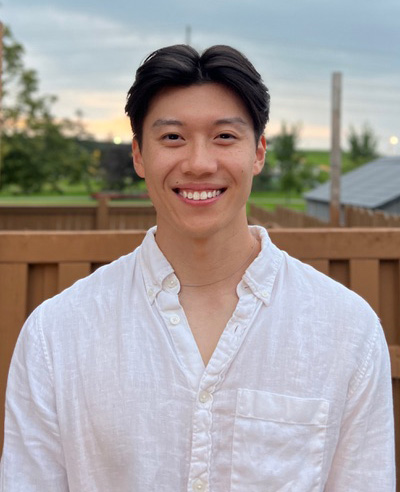1. Welcome back to the TBCRU, can you remind our readers who are you and tell us a little bit about yourself.
My name is Lawrence Yip, and I am in my fifth year of my Ph.D. at Western University. I am supervised by Dr. Jeffrey Carson in the Department of Medical Biophysics. We also work closely with surgical oncologist Dr. Muriel Brackstone.
2. As a senior researcher, why is the TBCRU Studentship Award important to you, how does it allow you to advance your research?
I am so thankful for the support provided by the TBCRU and BCSC throughout the years. Often, research progress can be slow, and setbacks are common. Knowing that I have the support of BCSC through these times has been helpful to keep me motivated. Moreover, BCSC provides opportunities through this program for trainees to interact with patients, their families and donors. I believe this aspect is needed to show researchers why their research matters, and to put faces to those that they are helping.
3. In a few lines, can you remind us what you are doing and what problems do you hope to solve with your research?
My research focuses on an imaging technique for early-stage cancer called photoacoustic imaging, used for breast-conserving surgery. While not yet used clinically, this technique shows great promise for imaging of soft tissue during surgery. Initially developed in the lab, the goal of my research is to use this technique on actual patients to test its effectiveness. By imaging breast tumours during surgery, I hope to eliminate the need for repeat surgeries, which currently occur 15% of the time.
4. Since we last spoke, have there been any changes to or any advancements in your research?
I’m very excited as I enter the final year of my degree. I just finished assembling a new and improved photoacoustic imaging system based on some lessons I learned with my earlier prototypes. I plan on testing this on clinical tumour specimens by summer 2020 as the final phase of my Ph.D. work.
5. Have you had an opportunity to present your research to your peer researchers? Was it at a national or international meeting or in some other way?
Every year, I present my research at several local conferences, including London Health Research Day and the Oncology Research and Education Day. Last year, I was also able to present at the SPIE Photonics West conference in San Francisco.
6. Did that presentation setting help you share your breast cancer research with the broader scientific community?
Absolutely. A few other international groups are working on similar projects and research to mine, and several groups are working on using other techniques for the same purpose. It was illuminating to discuss and compare our different approaches.
7. Did any of the feedback or conversations that came about from presenting your research, help you and your research in any way?
Yes! We often receive helpful questions or comments, and these sometimes even result in new collaborations. Just this past month, one of these conversations pointed me towards a research publication that will likely be essential to my project.
8. Now that you have had some more time with your research, how do you think your research will be applied in a real-world situation?
My project is meant to be applied specifically in a clinical setting; however, whether it will be used in the same way as a standard of care is another question. In addition to making sure that the new technology works and completing clinical trials, we also need to demonstrate this to hospitals and physicians.
9. Tell us about your involvement in the Breast Cancer Society of Canada fundraising events (Dress for the Cause, Mother’s Day Walk)?
Since 2015, I have been involved with the local Mother’s Day Walk as a volunteer and participant. I’m happy to help the cause however they need, but most often I have been involved with set-up and photography. In addition, we also do our best to raise funds in October for “Dress for the Cause” with bake sales.
10. What about your participation in other Breast Cancer Society of Canada donor events or tours, how has that impacted your perspective on breast cancer research?
Throughout the years in this program, I have had the opportunity to speak about my research at a golfing fundraiser as well as with The Weather Network. As I mentioned earlier, I am a firm believer that this is incredibly beneficial in allowing me and other researchers to better relate to patients and their families, and to understand the positive outcomes that our research can have.
11. What are you currently reading, watching or listening to outside of the lab?
I don’t find myself with much time to watch TV, but when I do, I tend to choose some form of action/crime drama. However, I am looking forward to reopening Systematic Theology, a book by Wayne Grudem, which will likely take me into 2022 by the time I finish!
Support researchers like Lawrence Yip by considering a donation to the Breast Cancer Society of Canada. Find out how you can help fund life-saving research, visit bcsc.ca/donate today.




